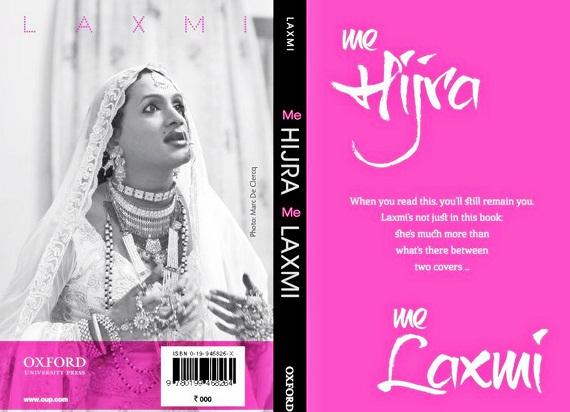HEADLINE
Indian transgender autobiography a hit at Jaipur’s literary festival
"Laxmi is a popular Hindi film actress and Indian classical dancer who specialize in bharatnatyam, a popular form of Indian Classical dance. "

The ninth edition of the Asia’s largest writer’s festival in Jaipur attracted 350,000 people.
And the session that featured Indian transgender writer, Laxmi Narayan Tripathi was jam-packed.
Laxmi is a popular Hindi film actress and Indian classical dancer who specialize in bharatnatyam, a popular form of Indian Classical dance.
She is also the first transgender person to represent the Asia Pacific at the United Nations.
Jasvinder Sehgal speaks to her about the powerful autobiography she has just released.
Laxmi is sharing her experience of being a transgender.
“Me Hijra–Me Laxmi” is the title of the new English translation of her autobiography, already in publication in two Indian languages, Marathi and Gujarati.
Laxmi says it was it was difficult to write everything in the book – especially revealing the worst parts of her life, such as being sexually abused.
“I was abused by one of my family known person, and was abused for many years. Till sixth standard, I have the guts to say no. The boys who came near to me thought that I am a sexual object,” she recalls, “I was a toy for them, which was not true. It was me and myself. And this I never wanted to talk [about] but I did it very beautifully.”
Laxmi says her autobiography is a narrative of her ordeal of becoming a transgender by choice and her subsequent journey of fighting against tremendous odds for the recognition of her community.
Laxmi says that it is her right to decide her gender.
“There are transgender, transman and transwoman and it is gender expressive. Tomorrow I think, I am a woman, I will be a woman. Nobody can deny that right from me. But for this I need not to go to a doctor or anybody, you can decide your gender. Ya, that’s the Supreme Court saying, but still section 377 is an issue,” she says.
![]()
Although India legalizes transgender as a third gender, the country’s sodomy law, or section 377, still criminalizes gay sex – treating same sex relationships as an unnatural offence.
Throughout country the transgender community is pushing for their rights but Laxmi criticizes the reservation system when it comes to getting government jobs.
In India almost 45 percent of government jobs are reserved for people from low castes, a policy that many in the young generation strongly oppose.
Her comments draw wide applause from the audience.
“I don’t believe in reservation, I don’t believe in castes, I don’t believe in color, for me if I have the ability to touch the seventh sky, I will do it but I need equal right opportunities with dignity,” she says.
The session is over and now it’s time to meet the writer. There are many who have purchased the book and are waiting in line to get Laxmi’s autograph.
Maitri Soorma is one among them.
“After listening to her session, today, I think I made a good decision by buying the book and I am going to enjoy reading it. I have never considered the society of transgender as different from the normal human society,” says Maitri Soorma.
And now it’s my turn to talk to the flamboyant transgender. She is extremely happy to meet her appreciative readers.
“Fine, its good,” says Laxmi, “Let the people read it and understand it much more than I reacting to it. The world has to react, I have done my bit.”
But at the end of the day Laxmi says big changes need to be made to fight discrimination and the legal and social difficulties for transgender all over the world.
“Everywhere it’s the same thing,” she points out, “In Pakistan we are known as Sarai khwaja, In Nepal we are known as metis, there are baklas, there are Fa'afafines, warias in Indonesia, stigma and discrimination is all because of loss of your original culture and the injection of colonization has brought the complete perspective change.”
It’s a tough job to work to improve the lives of transgender people in India.
But Laxmi’s book is helping to tell their stories, to a society that can bring about change.
- eng
- Jasvinder Sehgal
- India transgender
- Laxmi Tripathi
- transgender autobiography
Komentar (0)
KBR percaya pembaca situs ini adalah orang-orang yang cerdas dan terpelajar. Karena itu mari kita gunakan kata-kata yang santun di dalam kolom komentar ini. Kalimat yang sopan, menjauhi prasangka SARA (suku, agama, ras dan antargolongan), pasti akan lebih didengar. Yuk, kita praktikkan!